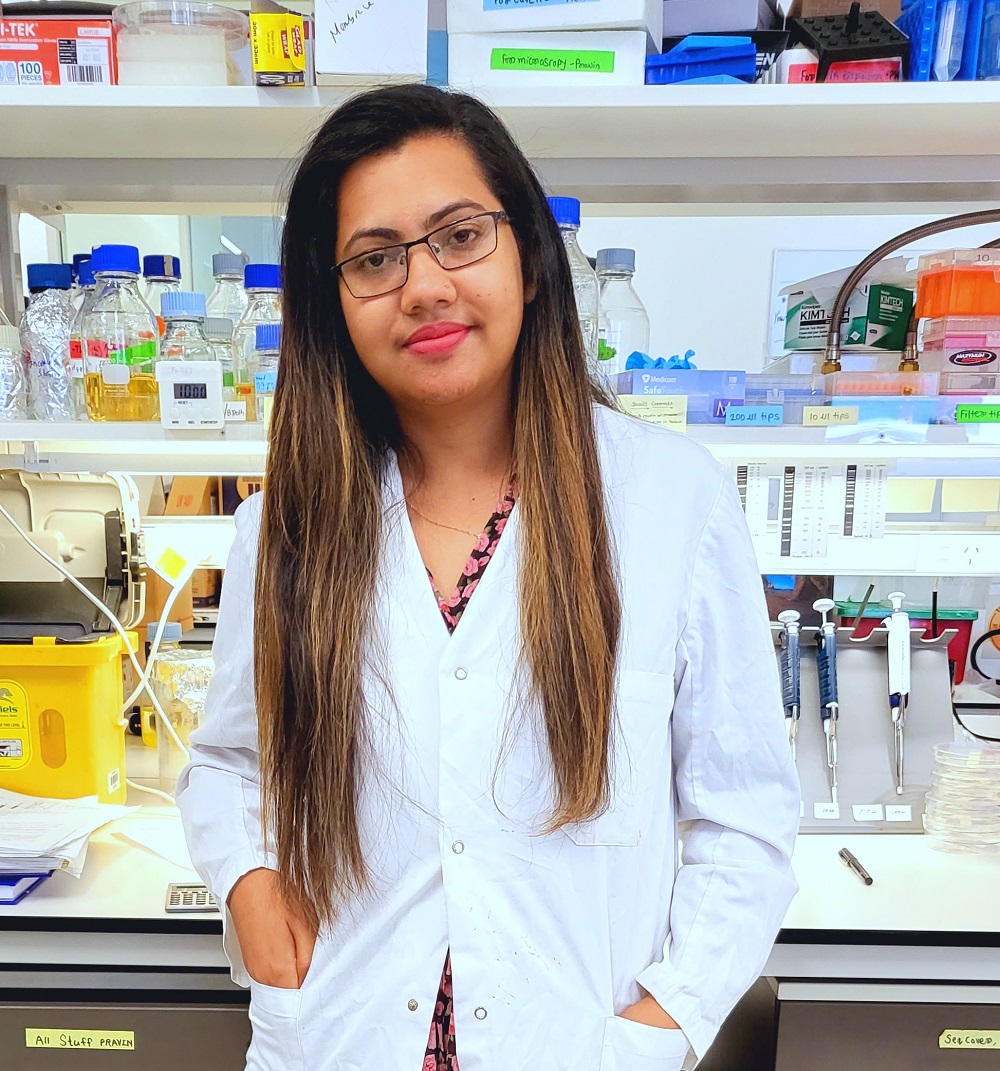PS Seminar Series: Investigating Avr3 effector function and activation of signal transduction and defence responses following recognition by I-3
The fungus Fusarium oxysporum causes devastating wilt diseases in plants.
Speakers
Content navigation
Description

Abstract - The fungus Fusarium oxysporum causes devastating wilt diseases in plants. The interaction between tomato and F. oxysporum f. sp. lycopersici (Fol) is an important model system for the study of plant/F. oxysporum interactions. Tomato has four immunity genes (I, I-2, I-3 and I-7) that enable it to recognise and respond to Fol isolates carrying the corresponding avirulence genes (Avr1, Avr2, Avr3 and Avr7). Besides the Avr3 role in pathogenicity and defence activation in tomato plants carrying the I-3 resistance protein, there is a gap of knowledge about its virulence function and downstream defence signalling mechanism. To study the virulence function of Avr3 and its activation of signalling and defence components following recognition by I-3, Avr3 was expressed in E.coli and purified for experimental use. Purified Avr3 protein was infiltrated into Nicotiana benthamiana and tomato leaves to look for a possible virulence function. Avr3 was found to induce callose deposition and suppress flg22-induced ROS accumulation in N. benthaminana and tomato. In the tomato, infiltration of Avr3 protein into leaves was found to induce an I-3-dependent cell-death response indicative of defence activation. This response has been used along with Virus-Induced Gene Silencing (VIGS) to develop an assay to study downstream signalling components involved in the I-3 response. The BAK1, SOBIR1, SAG101, and EDS1 appeared to be downstream signalling components required for I-3 mediated cell death, ion leakage, and Avr3 induced chitinase gene expression. Unlike most other resistance genes, I-3 encodes an S-receptor-like kinase, so this study will help us learn more about a novel plant defence-activation pathway.
Biography - Sharmin Rima is a PhD student from David Jones Lab in the Department of Plant Science in the Research School of Biology at the Australian National University (ANU), Australia. Her PhD program was funded by the Australian Government Research Training Program International Scholarship (AGRTP). Prior to joining ANU, she earned her M.S. in Genetics and Plant Breeding at Bangladesh Agricultural University, Bangladesh where she was also awarded the National Science and Technology Award by the Bangladeshi government for MS research work. She completed her B.Sc.(Hons.) in Agriculture at Hajee Mohammad Danesh Science and Technology University, Bangladesh with a university Dean’s scholarship. Her research interest is Molecular Plant Biology, Plant Pathology, Genetics, Plant Breeding and Agriculture.
Location
Eucalyptus Seminar Room, S205, Level 2, RN Robertson Building (46)
